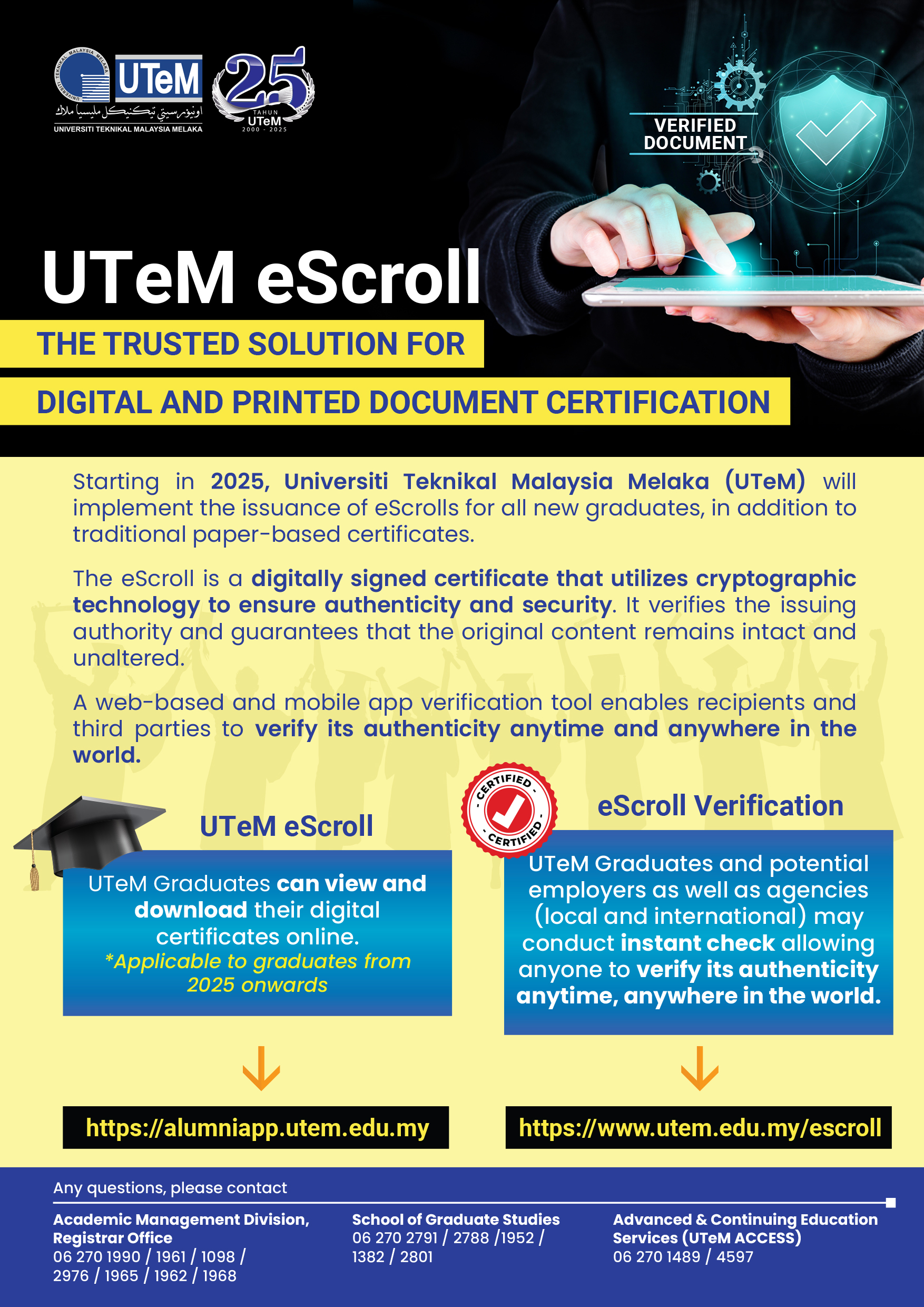Visa & Pass
Discover a straightforward guide to all things visa and pass-related for international students. Directly below, you’ll find a set of icons, each dedicated to key aspects of student life. By clicking on these icons, you gain access to essential information and resources tailored to your specific needs.
-
New Student Pass Application
All international students are required to have a valid Student Pass and Visa while studying at Universiti Teknikal Malaysia Melaka (UTeM).
Since February 2013, the Malaysia Ministry of Education has established Education Malaysia Global Services (EMGS) as the one-stop centre to process the student pass of all international students studying in Malaysia.
Students have to apply Student Pass through EMGS by online at: https://visa.educationmalaysia.gov.my/
To apply for New Student Pass Application, you need to provide the following documents:
- 1 passport size photograph
-
- 1 passport size photograph with WHITE background (35mm x 45mm)
- A copy of your Passport
-
- Your passport data page (bio-data page which shows your face, name etc)
- All pages with Visa information. EMGS don’t need all the pages of your passport. If the page is empty, you do not need to submit it.
- Students originating from the countries listed below must provide a copy of ALL passport pages during the submission of student pass application to EMGS:
- Libya
- Iran
- Iraq
- Somalia
- Sudan
- Syria
- Yemen
- Observation page (showing any extensions, clarifications of name, and previous passport numbers).
- Passport validity duration must be eighteen (18) months for the date of issue.
- Offer Letter
- A copy of offer letter from UTeM.
- Health Declaration Form
- Students will be required to fill up and submit a copy of the Health Declaration Form and upload to EMGS portal. Click hereto download the Health Declaration Form. (mohon rujuk Lampiran B – Health Declaration Form)
- Academic Certificates and Transcripts
- Student need to provide copies of all academic records, certificates or transcripts of studies previously undertaken.
-
After submit the Student Pass application to EMGS, EMGS will thoroughly process the application and qualification. If you are eligible, EMGS will endorse your application and submit to Immigration for final approval.
If Immigration approve, you will be issued the Visa Approval Letter (VAL). If no open issue, the whole process of the Student Pass application may take approximately minimum six (6) weeks. This duration is just estimation and it is dependent on EMGS and Immigration.
After got VAL approved, you have to apply Single Entry Visa (SEV) with VAL before entering Malaysia as a student.
You can apply SEV by online at: https://malaysiavisa.imi.gov.my/evisa/evisa.jsp
Or
Kindly contact the nearest Malaysian High Commission/Malaysian Embassy/Consulate or visit http://www.kln.gov.my/web/guest/mission
Upon receiving the VAL and SEV, you can start preparing to Malaysia.
Note:
You are NOT allowed to purchase your flight tickets to enter Malaysia before received the VAL dan SEV.
You can track and check your application status at: https://visa.educationmalaysia.gov.my/emgs/application/searchForm/
-
New Student Pass And Visa Endorsement
Upon arrival, you are required to attend a medical screening at a panel clinic in Malaysia within seven (7) days of your arrival date with the panel clinics appointed by EMGS. You may obtain the list of appointed panel clinics with Centre for International Students & Mobility (CISMo), Universiti Teknikal Malaysia Melaka (UTeM) or you can check by online at https://visa.educationmalaysia.gov.my/guidelines/registered-malaysian-clinic
You must submit your passport after the medical check-up to the CISMo within seven (7) days after arrival. CISMo will help to submit your passport to Immigration Malaysia for Student Pass and Visa endorsement.
Your Student Pass approval is subject to your post arrival medical health check report. We will notify you via email or phone call should your report is failed. Appealing of medical health check report is subject to the approval from the EMGS.
To apply for New Student Pass and Visa endorsement, you need to provide the following documents:
- Student Pass New Application Form.
- You will be required to fill up and submit Student Pass New Application Form at CISMo. Click hereto download the Student Pass New Application Form.(mohon rujuk lampiran - Student Pass New Application Form)
- 1 passport size photograph
- 1 passport size photograph with WHITE background (35mm x 45mm).
- A copy of your Passport
- Passport validity duration must be eighteen (18) months for the date of issue.
- The copy of all pages including black page (from page 1 to the last page of passport)
- Visa Approval Letter (VAL) and Single Entry Visa (SEV)
- Student need to provide copies of VAL and SEV.
- Personal Bond
- Students arriving at UTeM may be required to pay a Personal Bond at UTeM Bursary as part of the Student Pass application process. This bond is typically intended to ensure that students comply with visa conditions and do not violate immigration laws.
- Students need to provide copies of Personal Bond receipt from UTeM Bursary.
- Click hereto download the Personal Bond Fee for your reference.
- (mohon rujuk lampiran – Personal Bond Fee)
- Medical Slip
- Student need to provide the original medical check-up from panel clinics appointed by EMGS.
Note:
You are NOT to arrange any travel arrangement during the endorsement process till your passport is return to you with a valid Student Pass.
You are responsible to perform the medical check-up and submit your passport to CISMo within the stipulated time. If you don’t perform the tasks on time, it will cause insufficient time for EMGS to process your endorsement. CISMo will have to apply a Special Pass for you which will cost additional charge. If you only submit your passport after the expiry date, it is considered as overstay. Overstay is an offence. Immigration Malaysia will impose penalty and may even blacklist you or even being imprisoned.
Usually, the validity of the Student Pass is twelve (12) months. However, the duration is subject to the approval of VAL approved and Immigration Department of Malaysia. You have to check the duration when you collect your passport from CISMo.
All International Students will receive an International Students Card (iKad) once your Student Pass has been endorsed. The iKad will contain your name, passport number, education institution you enrolled and duration of your Student Pass.
- Student Pass New Application Form.
-
Student Pass And Visa Cancellation
Malaysia Immigration Department requires all international students to cancel their Student Pass and Visa when they have completed their studies, termination, or withdrawn from the University.
To apply for Student Pass and Visa Cancellation, you need to provide the following documents:
- Student Pass & Visa Cancellation Form
- You will be required to fill up and submit Student Pass & Visa Cancellation Form at CISMo. Click hereto download the Student Pass & Visa Cancellation Form.(mohon rujuk lampiran - Student Pass & Visa Cancellation Form)
- A copy of your Passport
- Passport validity duration must be twelve (12) months from the Student Pass expiry date.
- The copy of all pages including black page (from page 1 to the last page of passport)
- Flight Ticket
- The flight ticket must not exceed fourteen (14) days from the day of submission for Student Pass & Visa Cancellation at CISMo.
- Offer Letter
- Students need to provide original copy of Offer Letter from new University (for changing University)
- Completion / Termination / Withdrawn Letter
- Students need to provide a Completion / Termination / Withdrawn Letter (either one) from University.
- Student Pass & Visa Cancellation Form
-
Renewal Of Student Pass
It is the responsibility of the student to monitor the expiry date of their Student Pass. Students are required to submit the renewal documents for Student Pass extension two (2) months before the expiry.
To apply for Student Pass and Visa Renewal, you need to provide the following documents:
- Student Pass Renew Application Form
- You will be required to fill up and submit Student Pass Renew Application Form at CISMo. Click hereto download the Student Pass Renew Application Form.(mohon rujuk lampiran - Student Pass Renew Application Form)
- A copy of your Passport
- Passport validity duration must be eighteen (18) months for the date of issue.
- The copy of all pages including black page (from page 1 to the last page of passport)
- 1 passport size photograph
- 1 passport size photograph with WHITE background (35mm x 45mm).
- Class Attendance / Progress Report
- Student need to provide class attendance for two (2) semesters (1 current semester & 1 previous semester). Click here to download the Attendance (mohon rujuk lampiran - Attendance Form)
- Current and previous semester with MINIMUM of three (3) subjects with lecturer’s signature and their official stamp.
- For Academic English we need attendance only for current semester
- For Postgraduate Students, you need to provide the Progress Report.
- Supporting Letter
- Students need to provide original copy of Supporting Letter from faculty if Cumulative Grade Point Average (CGPA) less than 2.00.
Once we receive all the required documents, CISMo will submit to EMGS. After EMGS approve your renewal application, CISMo will submit your passport to Immigration for visa endorsement.
Note:
You should NOT make any travel arrangement during your endorsement process till your passport is return to you with a valid Student Pass.
For your renewal of Student Pass to be approved, your attendance in class should not fall below 80% and you need to achieve a minimum of CGPA 2.00 as required by the Ministry of Education, Malaysia.
The above requirements are subject to change depending on EMGS and Immigration Department of Malaysia.
- Student Pass Renew Application Form
Sustainable Development Goals (SDG)

Sustainable Development Goals (SDG)
Sustainable Development Goals (SDG) are a collection of 17 global goals aimed at improving the planet and the quality of human life around the world by the year 2023.
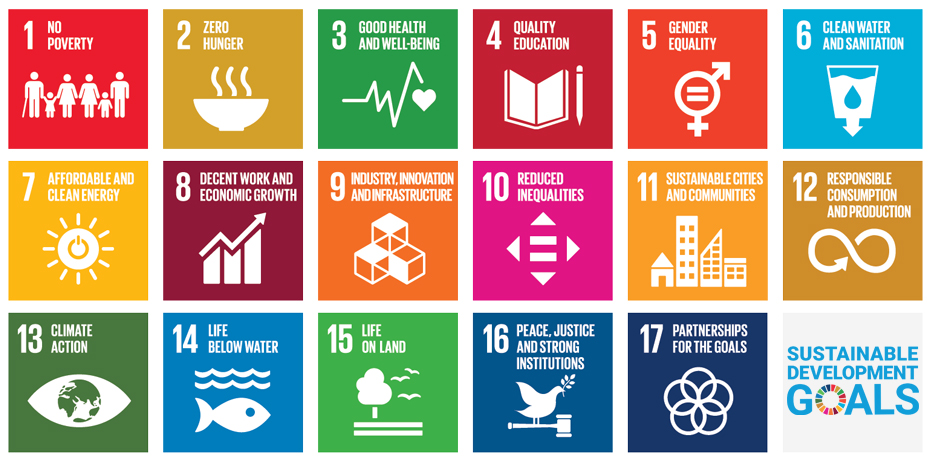
From 17 SDGs, Universiti Teknikal Malaysia Melaka (UTeM) focused on 7 SDGs which are SDG 1 (No Poverty), SDG 4 (Quality Education), SDG 6 (Clean Water and Sanitation), SDG 7 (Affordable and Clean Energy), SDG 9 (Industry, Innovation and Infrastructure), SDG 12 (Responsible Consumption and Production) and SDG 17 (Partnerships for the Goals).
-
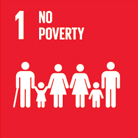
Focus Sdg 1
-
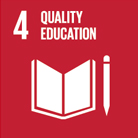
Focus Sdg 4
-
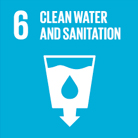
Focus Sdg 6
-
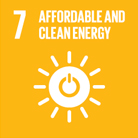
Focus Sdg 7
-
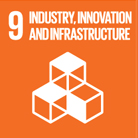
Focus Sdg 9
-
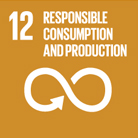
Focus Sdg 12
-
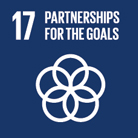
Focus Sdg 17
The Universiti Teknikal Malaysia Melaka (UTeM) SDG Report of documents our initiatives and provides information on our role as an educational institution practicing sustainability.
SDG 1 (No Poverty)

UNIVERSITY ANTI-POVERTY PROGRAMMES
-
Bottom financial quintile admission target
Description:
B40, M40, and T20 refer to the household income classification in Malaysia. B40 represents the Bottom 40%, M40 represents the middle 40%, whereas T20 represents the top 20% of Malaysian household income.UTeM follows the income classification that the government has set.
Income Classification in Malaysia 2021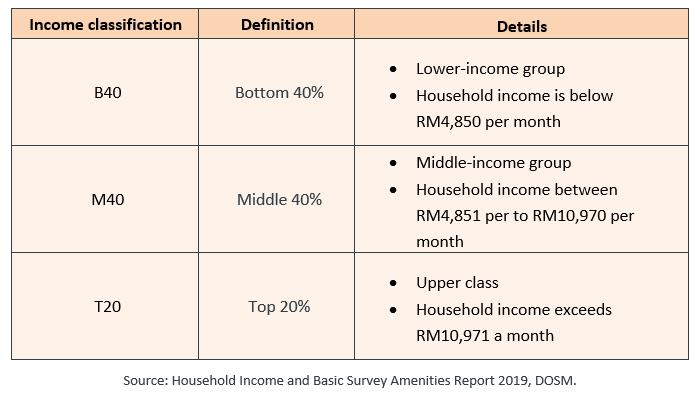
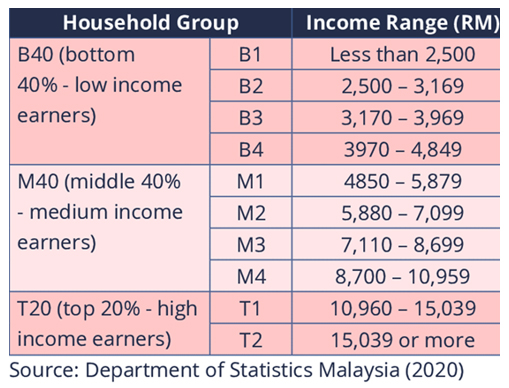
UTeM believes that access to proper and quality education is vital in breaking the poverty cycle, which is key to transforming the lives of families and communities. Based on the data on student admission, in 2022 UTeM has admitted 1103 undergraduate students (43% of student intake) who came from low-income families.

Based on the demographic of undergraduate UTeM’s students of 10,587, 60.6% of the students (or 6,418) come from the B40 group, which is the household income range is below RM4,850.00. Meanwhile a total of 1216 (11.5%) students are students who belong to the category of asnaf, whose family income is below RM1,169.00.
Picture B: UTeM data for student bottom 40% household income group (BL40 & B40)
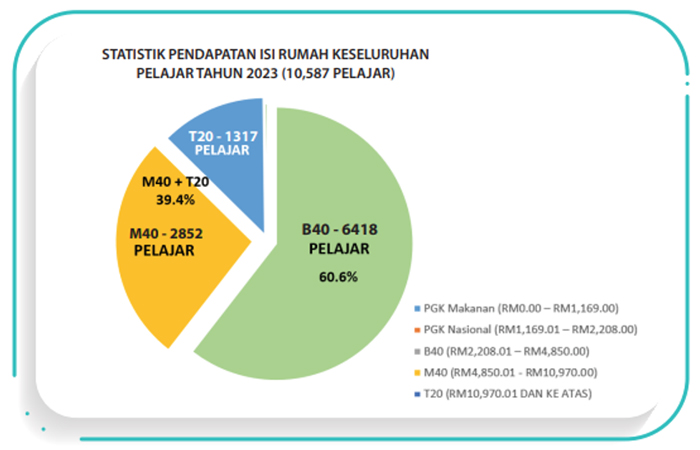
-
Bottom financial quintile student success
Description:
B40, M40, and T20 refer to the household income classification in Malaysia. B40 represents the Bottom 40%, M40 represents the middle 40%, whereas T20 represents the top 20% of Malaysian household income.
UTeM establishes holistic support systems to ensure that all students have an equitable opportunity to successfully graduate within 4 years. The support systems are hoped to help especially the lower income students but are not exclusively for them.
Based on the total number of graduates for the year 2022, there are 30% of the lower-income group students have managed to graduate. The data are presented in the table below.

The support system that UTeM has prepared for students includes financial aid, donated goods or in kind to UTeM students throughout the study period them. The Student Welfare Unit has identified student needs especially financial problems especially tuition fee financing, daily expenses as well accident and death charity. Increased cost of living also affects students in living daily life and needs to be dealt with as best as possible so as not to affect the focus students throughout their studies.
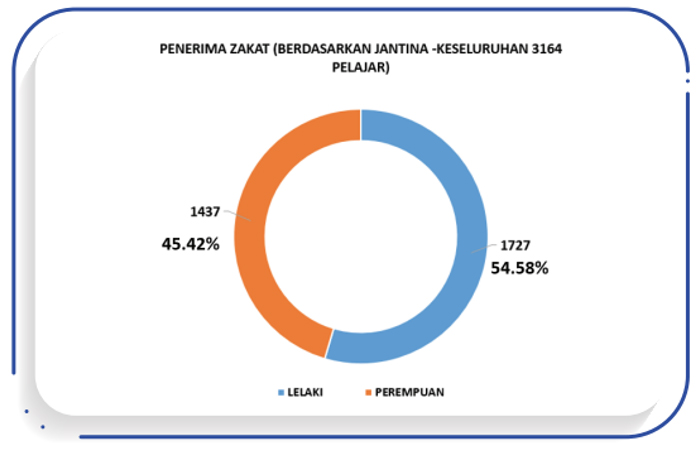
Picture: Distribution of zakat among UTeM students as a form of monetary assistance
However with the acknowledgement that the B40 students are more impacted by their financial situation, UTeM has distributed financial assistance amounting to RM64,250.00 to help this group of students. UTeM goes to the length to help the financially strapped students to realize their dreams by providing scholarships to eligible students, waiving semester fee and giving mpnthly allowance.
News:
-
Low-income student support
Description:
The UTeM Endowment Fund, the UTeM Donation Fund and the UTeM Waqf Fund are charitable funds established to collect funds and provide opportunities for corporate companies, external agencies, the public, individuals, alumni and UTeM staff to donate to further stimulate the activities of science scholarship at UTeM. For information, the amount of contributions collected from various parties including UTeM staff until 31 August 2023 is as much as :-

In addition, UTeM students also receive financial assistance from Short Term Loans (PJP), where in the year 2023, a total of 148 students have received benefits from this loan involving an amount worth RM65,480.00.

The UTeM Student Charity Fund has been introduced to help students who have suffered calamities such as accidents, natural disasters, death of mother/father/spouse/child, medical treatment assistance, and special cases are subject to approval. In 2023, a total of RM37,705.00 in charity aid for UTeM students has been provided as a result of the collection student charity fee of RM10.00 charged to students for each semester. Here is the performance comparison of the distribution of Student Fund aid allocations in 2023.
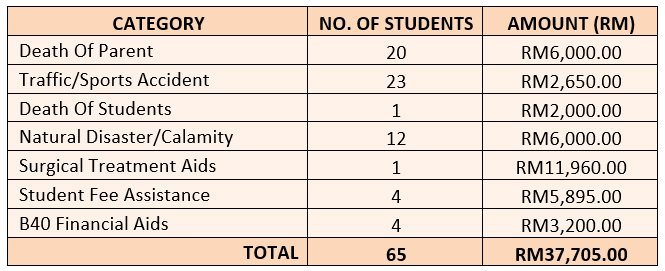
Facilities Provided for Students’ Welfare
The event organized by the Universiti Teknikal Malaysia Melaka (UTeM) brought together the recipients of contributions from initiatives based on the spirit of KPT Prihatin consisting of students, asnaf students and community representatives from all over Melaka.
Among the initiatives is the handing over of the UTeM Golden Child Program assistance to 3 students who will receive funding for learning and living costs throughout their studies there which is the result of the efforts of the UTeM Chancellor's Foundation.
UTeM also launched the TUAH Care Food@Campus application which is expected to facilitate aid distribution and transactions for about 1,500 of their B40 students under the Malaysian Family Student Menu initiative introduced by the Ministry of Education and Culture.
Also at the ceremony were 50 IPT students from all over Malacca who received tablets each donated by the Malaysian Family Student Initiative which was launched by YAB PM on 3 September.
In addition to UTeM, PTPTN also supported Malaysian Malacca Families through the SSPN Prime Savings Account Donation amounting to RM 60,000 which was allocated for the benefit of approximately 600 asnafs which was presented to six area representatives in the state.
News:
- https://www.utusan.com.my/berita/2022/09/rohana-jadi-anak-emas-utem/
- https://www.melakahariini.my/utem-hulur-sumbangan-kepada-pelajar-b40/
- https://malaysiagazette.com/2023/01/29/penuntut-b40-utem-terima-bap-untuk-teruskan-pengajian/
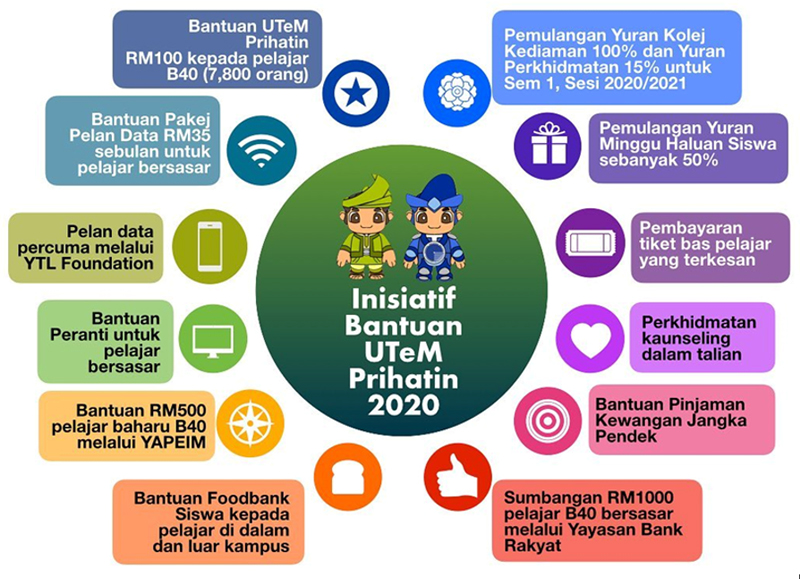
This is continuos initiative to help UTeM student especiallty category bottom income.
-
Bottom financial quintile student support
Description:
The support system that UTeM has prepared for students includes financial aid, donated goods or in kind to UTeM students throughout the study period them. The Student Welfare Unit has identified student needs especially financial problems especially tuition fee financing, daily expenses as well accident and death charity. Increased cost of living also affects students in living daily life and need to be dealt with as best as possible so as not to affect the focus students throughout their studies.
In conjunction with the launch of the UTeM Sejahtera KPT Prihatin Tuah Sejahtera program, the YB Minister together with the YAB Chief Minister of Melaka completed the handover of Peranti Siswa to 50 students from UTeM, UiTM, Politeknik Melaka, Politeknik Merlimau and Melaka International College of Science and Technology (MiCoST). Package Peranti Siswa Keluarga Malaysia is a government initiative in collaboration with selected telecommunication companies to supply a tablet device to every B40 student at IPT to help their Teaching and Learning (PdP) process.
A total of 65,898 students from all over the country applied for device facilities under the Peranti Siswa Keluarga Malaysia's second phase within a month starting last August 1.1. The UTeM Endowment Fund, the UTeM Donation Fund and the UTeM Waqf Fund are charitable funds established to collect funds and provide opportunities for corporate companies, external agencies, the public, individuals, alumni and UTeM staff to donate to further stimulate the activities of science scholarship at UTeM. For information, the amount of contributions collected from various parties including UTeM staff until 31 August 2023 is as much as :-

2. In addition, UTeM students also receive financial assistance from Short Term Loans (PJP), where in the year 2023, a total of 148 students have received benefits from this loan involving an amount worth RM65,480.00.

3. The UTeM Student Charity Fund has been introduced to help students who have suffered calamities such as accidents, natural disasters, death of mother/father/spouse/child, medical treatment assistance, and special cases are subject to approval. In 2023, a total of RM37,705.00 in charity aid for UTeM students has been provided as a result of the collection student charity fee of RM10.00 charged to students for each semester. Here is the performance comparison of the distribution of Student Fund aid allocations in 2023.

4. Facilities Provided for Students’ Welfare
The event organized by the Universiti Teknikal Malaysia Melaka (UTem) brought together the recipients of contributions from initiatives based on the spirit of KPT Prihatin consisting of students, asnaf students and community representatives from all over Melaka.
Among the initiatives is the handing over of the UTeM Golden Child Program assistance to 3 students who will receive funding for learning and living costs throughout their studies there which is the result of the efforts of the UTeM Chancellor's Foundation.
UTeM also launched the TUAH Care Food@Campus application which is expected to facilitate aid distribution and transactions for about 1,500 of their B40 students under the Malaysian Family Student Menu initiative introduced by the Ministry of Education and Culture.
Also at the ceremony were 50 IPT students from all over Malacca who received tablets each donated by the Malaysian Family Student Initiative which was launched by YAB PM on 3 September.
In addition to UTeM, PTPTN also supported Malaysian Malacca Families through the SSPN Prime Savings Account Donation amounting to RM 60,000 which was allocated for the benefit of approximately 600 asnafs which was presented to six area representatives in the state.
News:
-
Low or lower-middle income countries student support
Description:
UTeM assists students through employee opportunities and endowment funds.Universiti Teknikal Malaysia Melaka (UTeM) has allocated RM10 million for its Kesidang Scholarship programme, which will be offered over the course of five years to individuals who wish to pursue their studies at the university, including those from troubled nations such as Palestine.
The scholarship covers tuition fees for students pursuing diploma and postgraduate degrees at the university. The Kesidang Scholarship, which is internally funded by UTeM, is one of the university's initiatives to assist local and foreign students, such as those from Palestine, who are unable to continue their studies at UTeM on humanitarian grounds. UTeM have received two applications from Palestinians for the Kesidang Scholarship.News:
-
Local start-up assistance
-
Local start-up financial assistance
-
Programmes for services access
-
Policy addressing poverty
COMMUNITY ANTI-POVERTY PROGRAMMES
-
Local start-up assistance
Description:
UTeM helps local start ups through coaching and coursesEntrepreneurship is one of the driving forces behind the growth and development of our society. From creating jobs to generating innovative ideas and products, entrepreneurs have the power to change the world and shape the future. Their impact can be felt in all aspects of life, from the economy to culture and even politics.
Entrepreneurship education is an essential component of the country’s vision of an innovative society. It is also part of a broader objective to raise employment levels and create a more inclusive labour market, more particularly to include young people not in employment, education or training. Having this realization, UTeM has provided coaching and training programs to help local start-ups, not only for UTeM students.
UTeM has collaborated with local agencies such as National Entrepreneurship Institute (INSKEN) and Ministry of Youth and Sports, to conduct programs related to entrepreneurship. Collaboration also includes companies such as Nestle, Sugar Bomb, Celcom Digi and others. Among the activities included in this dimension are: such as buying and selling activities including digitally, Entrepreneurship Talks, Entrepreneurship Courses, practical activities in business science, Night Market, Kiosk Business and Business, Incubator Program, Gig Economy, Job on Campus, Job Creator session other business partnerships related to it.
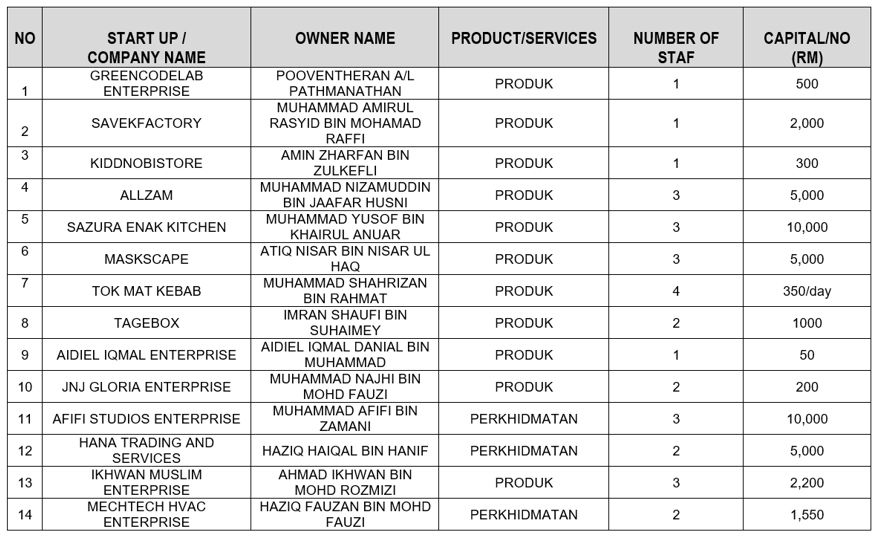
News:
- https://www.astroawani.com/berita-malaysia/wanita-perlu-terokai-bidang-keusahawanan-teknikal-366723
- https://www.facebook.com/photo/?fbid=662591599237264&set=a.460032726159820
- https://www.facebook.com/photo/?fbid=690591366437287&set=a.460032726159820
- https://www.facebook.com/photo/?fbid=696457759183981&set=a.460032726159820
- https://www.facebook.com/photo/?fbid=689011763261914&set=pcb.689011843261906
-
Local start-up financial assistance
Description:
UTeM has jointly organized a pitching competition together with Ministry of Higher Education. The competition was named NATIONAL MICRO ENTERPRISE PITCHING COMPETITION. This national level Entrepreneurship Program aims to train, guide and produce more student start-up companies, especially those based on technology and innovation.
The winner may use the seeding money for the entrepreneurship ideas that they has presented.
News:
-
Programmes for services access
Description:
For the benefits of students and community, UTeM organized programs that aims to help improving the access to basic services for all. As a Higher Education Institution (HEI), UTeM focuses on education and academic development as the basic service that should be easily accessible to all aspect of community. With this aspiration, UTeM has conducted training programs for the community where they can improve their needs for education and academic development.
UTeM has also established a specialized training programme named “TVET Wanita JELITA Academics (Job Empowerment by Learning and Inclusive Techinal Advancement). This programme is jointly co-ordinated by UTeM and Kolej Universiti Agrosains Malaysia (UCAM). It provides TVET based training for women with the aim to further improve the economy of women.
News:
-
Policy addressing poverty
Description:
UTeM was significantly involved in one of the government’s initiatives to further improve the economy of women in the country. The establishment of TVET Wanita JELITA Academics (Job Empowerment by Learning and Inclusive Technical Advancement) is aimed to produce more career-oriented, professional and competitive women through the development of their talents, skills, and knowledge.
The programme is part of a strategic collaboration between Kolej Universiti Agrosains Malaysia (UCAM) and Universiti Teknikal Malaysia Melaka (UTeM), whose role are to provide training and develop skilled workers of quality specifically for women.
It also offers an exclusive study preparation package as a result of collaboration with industry partners who are ready to offer more than 1,000 job opportunities according to market needs.
News:
SDG 4 (Quality Education)

The Sustainable Development Goal 4 (SDG 4) focuses on quality education for all. Universiti Teknikal Malaysia Melaka (UTeM) is one of the universities that actively works towards this objective. UTeM's actions are in line with SDG 4 because they support high-quality, inclusive, and equitable education, improve learning opportunities, and encourage lifelong learning for all.
-
Lifelong learning in UTeM
Lifelong learning at UTeM was an ongoing commitment to providing continuous education, skills development, and knowledge enhancement beyond formal academic degrees. This initiative was designed to foster a culture of continuous learning and skill upgrading, catering to the evolving needs of individuals in a rapidly changing world.
The following outlines the methods in which UTeM support lifelong learning:
-
Online Courses and Programs:
UTeM offer online courses and programs through platforms like MOOCs (Massive Open Online Courses) or through their own learning management system. These courses can cover diverse subjects and can be accessed by the public.
https://ucreds.utem.edu.my/ -
Open Educational Resources (OER):
UTeM provide open access to educational materials, including lecture notes, presentations, and other resources that can be accessed by anyone interested in self-learning.
https://library.utem.edu.my/ms/#eprint -
Library Services:
UTeM's library offer not only physical books but also digital resources, e-books, journals, and databases that can be accessed remotely by the public or via a membership.
https://library.utem.edu.my/ms/pangkalan-data.html -
Continuing Education Programs:
UTeM provides public continuing education and professional development. These could be part-time classes, seminars, or workshops covering a range of subjects.
https://ppsh.utem.edu.my/ms/ -
Collaboration with Industry Partners:
UTeM also collaborate with industry partners to provide workshops, talks, or seminars aimed at fostering lifelong learning and skill development in specific fields or industries.
News:
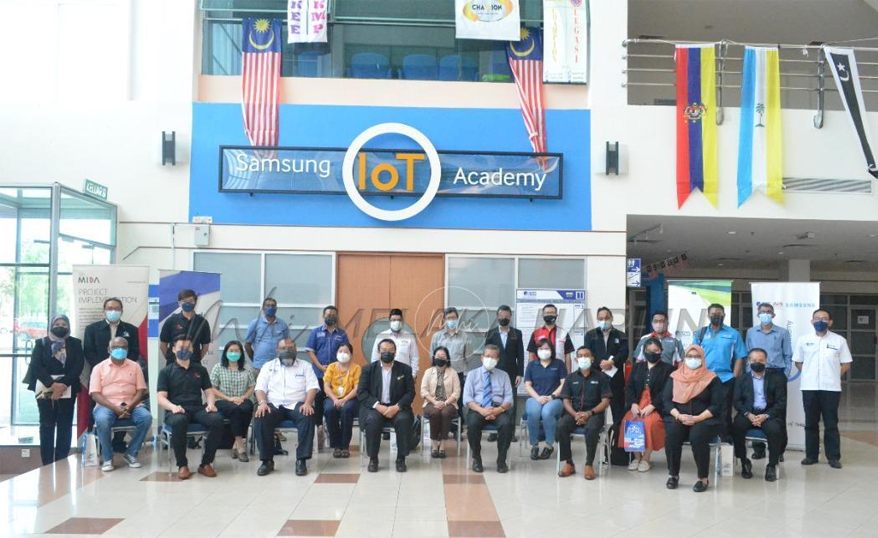
The representatives from the industry are participating in the UTeM-Malaysian Investment Development Authority (MIDA) Industry Roundtable program.
-
-
Knowledge Transfer Program (KTP)
Knowledge Transfer Programmes (KTP) are a tool that Universiti Teknikal Malaysia Melaka (UTeM) uses to share research findings, expertise, and useful information with a range of stakeholders, including government agencies, local communities, and business partners.
The KTP at UTeM was a planned programme created to let external parties benefit from the university's expertise and technological innovations. Usually, there were multiple channels by which this transmission happened:
-
Collaborative Projects:
UTeM collaborated with industry partners or local communities on research projects or initiatives. These projects aimed to address practical issues, solve problems, or develop new technologies relevant to the involved stakeholders. -
Consultancy Services:
The university offered consultancy services, where UTeM's experts, faculty members, or researchers provided advice, guidance, or expertise to external organizations. This helped in problem-solving, enhancing processes, or improving efficiency. -
Training and Workshops:
UTeM organized training sessions, workshops, or seminars tailored to the needs of external stakeholders. These events focused on sharing specific skills, knowledge, or technological advancements developed by the university. -
Technology Transfer and Intellectual Property:
The KTP also facilitated the transfer of technologies, patents, or intellectual property developed within the university to industry partners for commercial or practical applications. -
Community Engagement:
UTeM's KTP might have involved outreach programs directed towards the local community, fostering relationships, sharing knowledge, and addressing community needs through various projects and initiatives.
UTeM organize a Knowledge Transfer Program (KTP) webinar every month. This program is co-organized by the Malaysian Industrial Development Authority (MIDA). Participants will receive a digital certificate of participation and CPD point (for UTeM staff). This program is free of charge and will be conducted as an online webinar using the Webex platform.
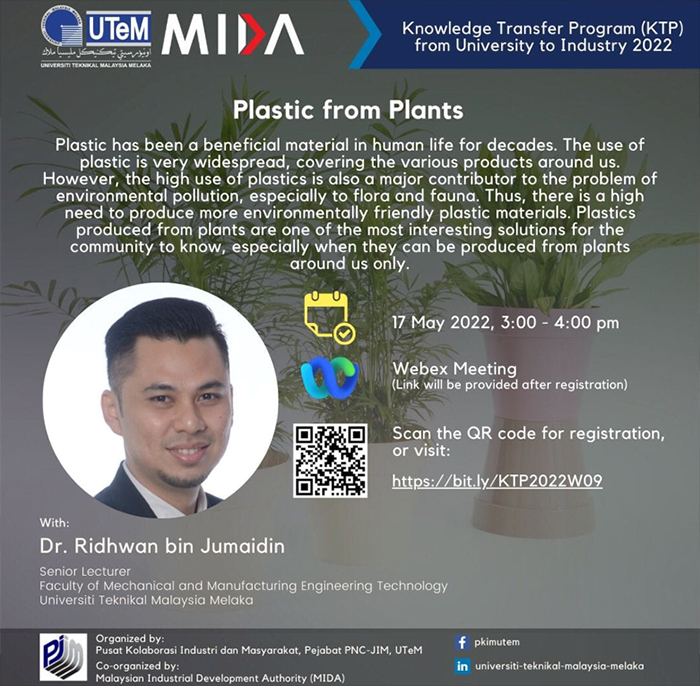
News:
- https://www.facebook.com/PNC.PJIM.UTeM/posts/pfbid0G1YcfURAjeTx8zgvkANJ3Gg2Thwa3Trjfar6P1hXnTKkYJJhAFM4wX1bVTZhAtsTl
- https://www.facebook.com/PNC.PJIM.UTeM/posts/pfbid0TAj1AUycFkonMKLZiKyhjESF2HEUPSAqfQ8HPDhkDyDFJUo65MqQhJhgKsnY7unql
- https://www.facebook.com/PNC.PJIM.UTeM/posts/pfbid028c2E4PnVs6RGb7YFHCj2nsbnXoXvHyzcd78TJJmsDg5S4k5DMjji7nKsjv72rG1Jl
-
-
Technical Female Entrepreneurs: Prosperity Generator
The two-day convention with the theme 'Technical Female Entrepreneurs: Prosperity Generator' gathered close to 1,000 women entrepreneurs from diverse fields. The event aimed to highlight and support the endeavors of women involved in technical and entrepreneurial pursuits. Throughout the convention, attendees engaged in discussions, workshops, and networking opportunities, focusing on empowering female entrepreneurs in technical domains. The gathering provided a platform for sharing experiences, knowledge, and insights to foster growth, innovation, and prosperity in their respective fields.
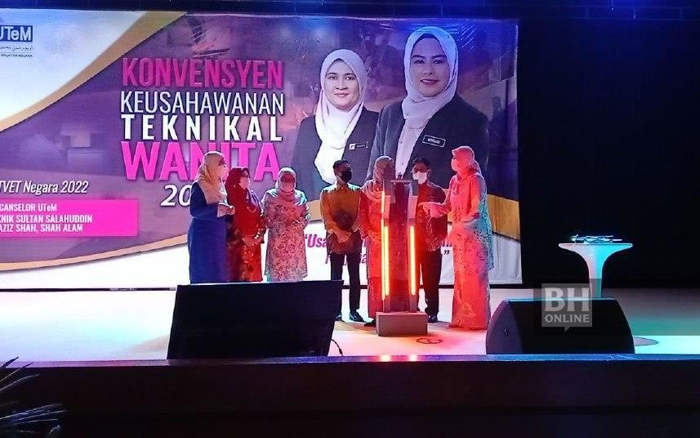
News:
-
Education Outreach Activities
-
STEM Programs for Schools:
UTeM has organized Science, Technology, Engineering, and Mathematics (STEM) programs for school students. These programs involve workshops, hands-on activities, and interactive sessions that aim to foster interest and understanding in these technical fields -
School Visits and Campus Tours:
UTeM invites school students to visit its campus. These visits provide an opportunity for students to explore the university environment, interact with faculty and students, and gain insight into various programs and facilities available at the university. -
Collaborative Projects with Schools:
UTeM collaborate with schools on projects that involve students from both the university and the schools. These projects often focus on fostering innovation, problem-solving skills, and practical application of knowledge. -
Workshops and Seminars:
The university organize workshops and seminars specifically tailored for school students and educators. These sessions cover a wide range of topics, including technology, engineering, academic skills, and career guidance. -
Competitions and Events:
UTeM host or participate in educational competitions, challenges, or events that encourage student participation. These could range from science fairs to robotics competitions, stimulating creativity and innovation among students. -
Teacher Training Programs::
UTeM also organize programs or workshops designed to enhance the skills and knowledge of teachers. These programs could focus on new teaching methods, technological advancements, or subject-specific training to improve the quality of education in schools. -
Community Engagement Initiatives:
Beyond schools, UTeM also engage with the wider community through various educational outreach programs. These initiatives could involve public talks, exhibitions, or collaborative projects that involve local communities.
UTeM's education outreach activities are aimed at inspiring, educating, and supporting the learning journeys of students at different educational levels. These initiatives not only benefit the students but also contribute to the development of education and technical skills in the community.
-
-
Service Learning Malaysia-University for Society (SULAM) FKP 2022
The success in creating an innovative product that benefits the local community is undoubtedly a significant achievement for students. This was experienced by a group of students from the Faculty of Manufacturing Engineering (FKP) at Universiti Teknikal Malaysia Melaka (UTeM). They applied their knowledge, skills, and innovation by constructing recycling bins for the purpose of local community use.
The project, conducted through the Service Learning Malaysia-University for Society (SULAM) FKP 2022 initiative, is aimed at encouraging community service related to what the students have learned, extending their expertise to the public or relevant agencies.
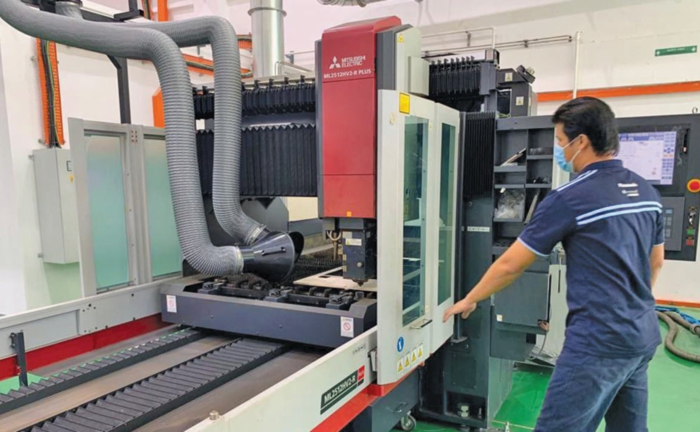
The metal plate cutting process: Laser Cutting Machine
News:
-
Mydigitalmaker Fair 2022
Through strategic collaboration between the Malaysia Digital Economy Corporation (MDEC) and Universiti Teknikal Malaysia Melaka (UTeM), a more methodical and focused Digitalization Empowerment programme will be implemented through a joint public-private-academic initiative to transform Malaysian youth from digital users to producers in the digital economy. One of the primary platforms via which MDEC fulfils its social obligation to university students and school residents is this programme, which aims to support digital projects in Melaka, Negeri Sembilan, Johor, and Malaysia as a whole. We manage to achieve our target about 10000 participants onsite and online that join workshops and competitions.
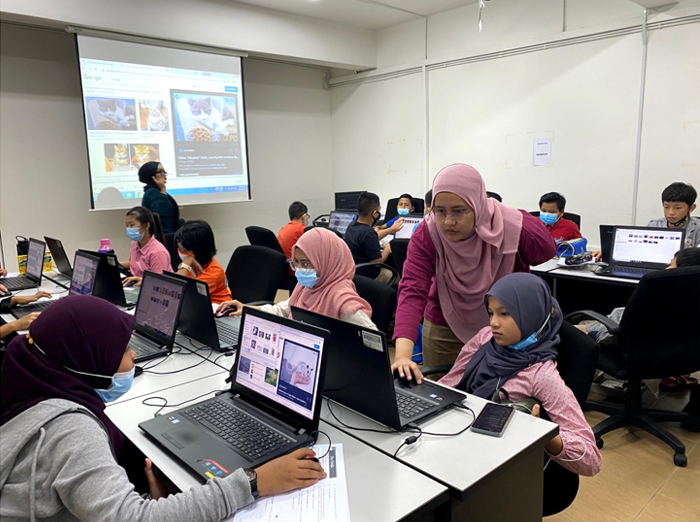
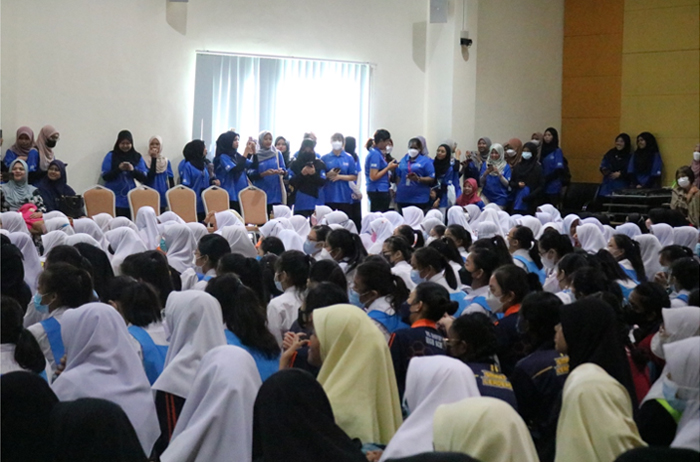
News:








